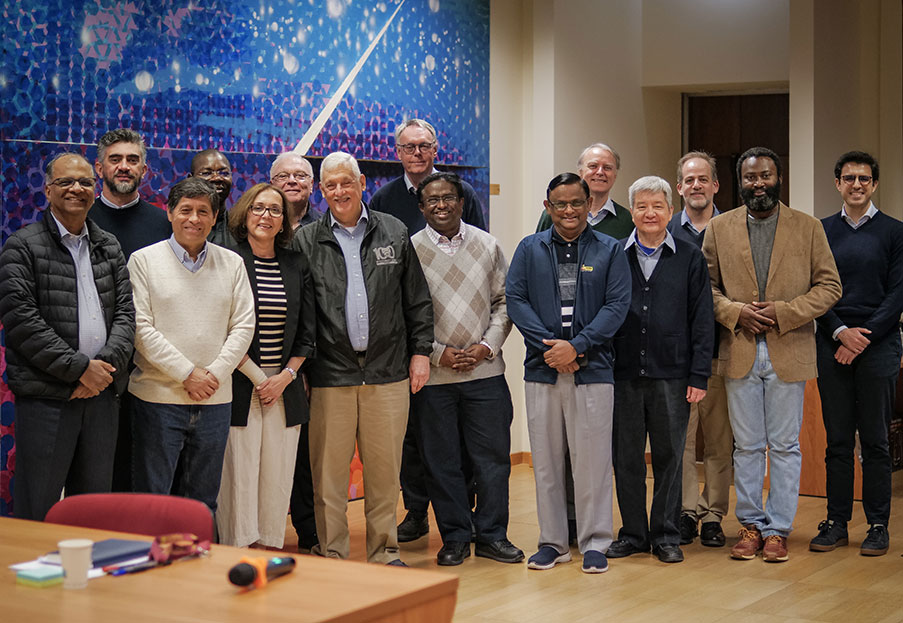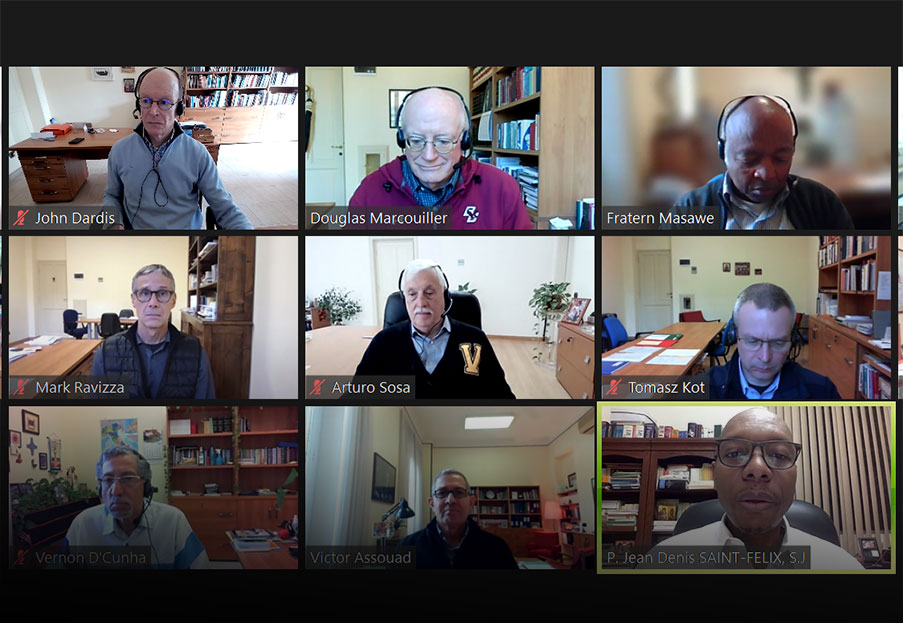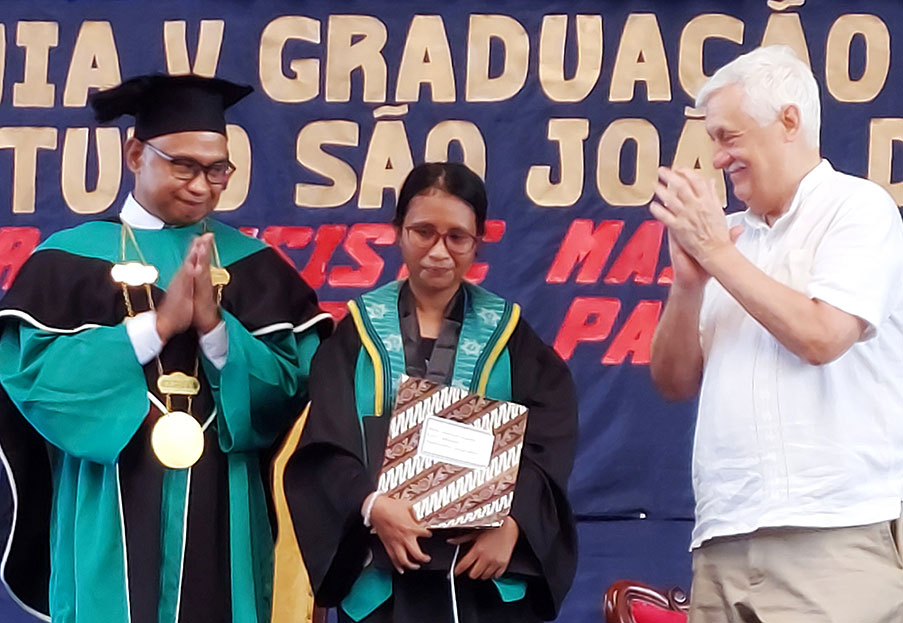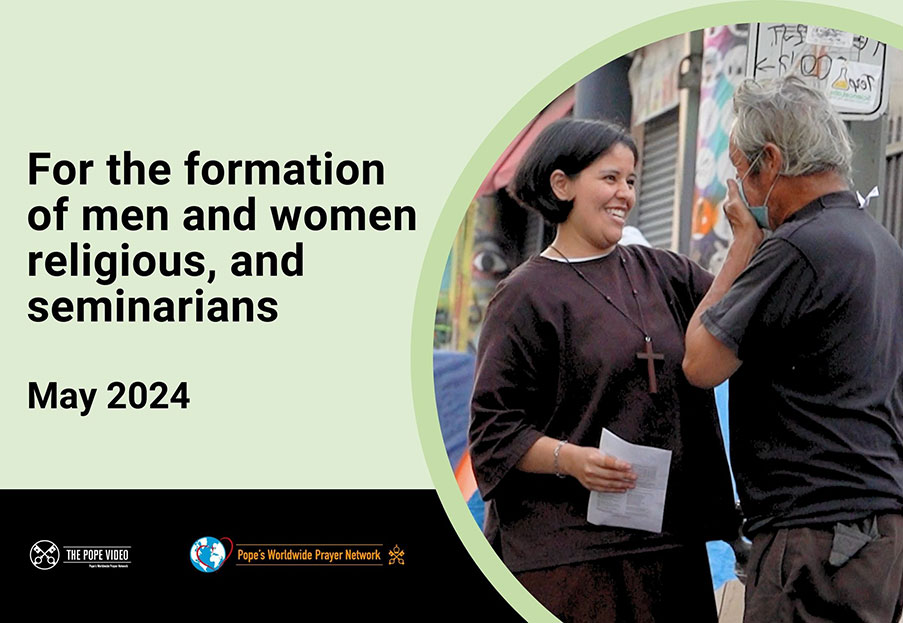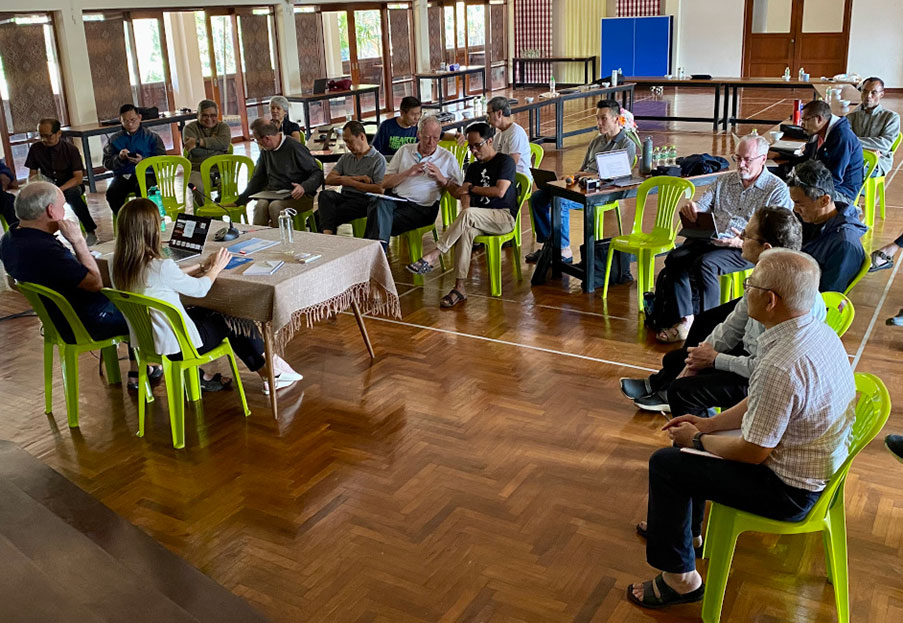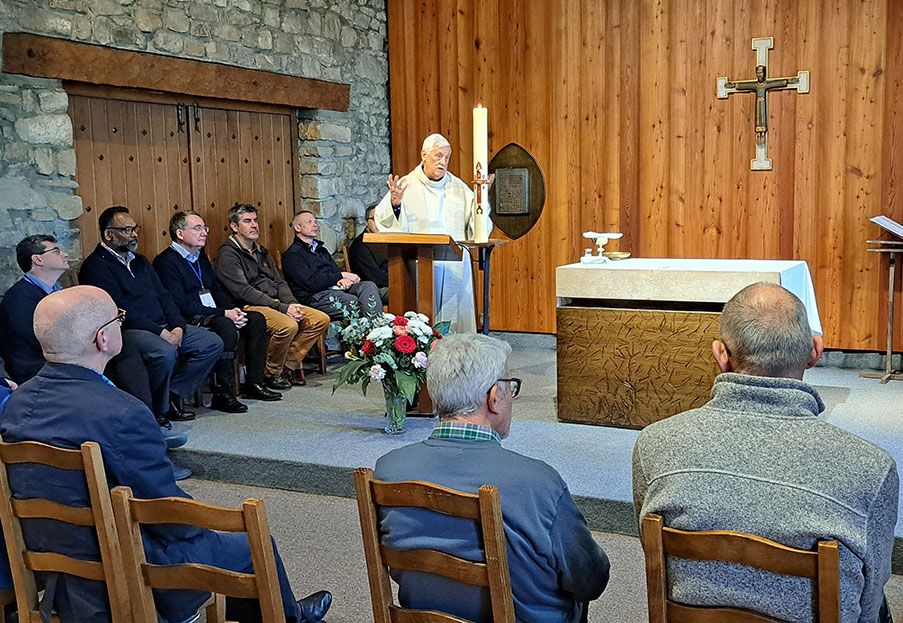In Colombia, a school dedicated to governance and public ethics
At
the Javeriana, the Jesuit University in Bogotá, we were intrigued by a
programme of great relevance in the Colombian context. The Javeriana School of Government
and Public Ethics (EJG) deals with subjects that could give food for thought for
many other university departments around the world. We interviewed its
director, the Jesuit Luis Fernando Álvarez Lodoño. A magistrate on the
Constitutional Court and honorary member of the Colombian Academy of
International Law, he is a man committed to the promotion of a rule of law that
incorporates the human dimension.
Luis Fernando Álvarez, you are the director of a rather unusual “university school” at the Javeriana. How could you briefly present your project?
We conceived the Javeriana
School of Government and Public Ethics to help deal with the pressing ethical
challenges that have arisen and are growing in our society. These challenges
include sustainable development, justice and democracy, the fight against
corruption, human rights, digital transformation, cybersecurity, and many other
issues with local, regional and global relevance. We want the School to provide
a permanent forum where civil society, public opinion, the Church, academia,
the government and international organisations can engage in dialogue. It
is a place where people can study, analyse and develop models of governance and
public policies with ethical values. This work is carried out through academic
units of the Universidad Javeriana and in cooperation with national and
international organisations.
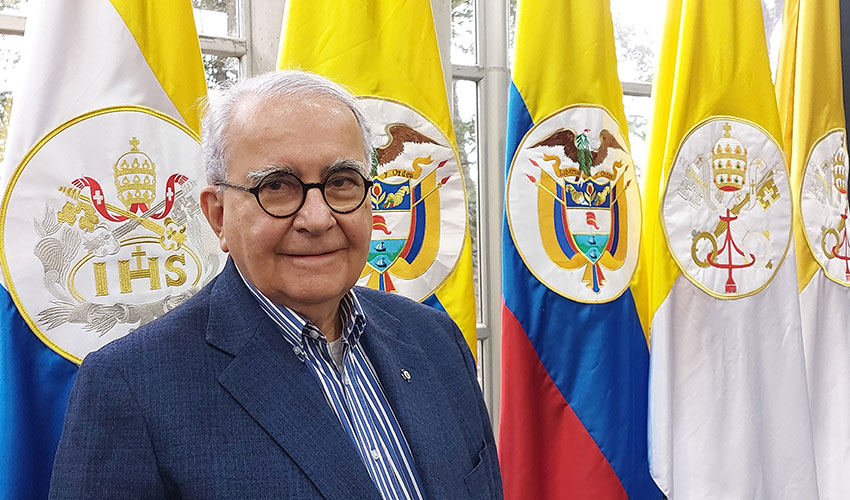
Luis Fernando Álvarez Lodoño SJ.
Who are the students and what are their motivations? Are they mainly Colombian?
The School is a forum open to the global community, and it addresses relevant issues from a cutting-edge perspective. It has therefore attracted interest from all types of students and actors in the public and private sectors, mainly in Latin America. They have an earnest desire to generate knowledge and contribute to overcoming the crises of our societies.
Have you been especially interested in the work of the Comisión de la Verdad (Truth Commission) and its efforts to bring peace and reconciliation in Colombia?
The Universidad Javeriana
has participated actively and continuously as a source of reflection and
mediation in this endeavour, which has given us a better understanding of the
conflict, its repercussions and potential avenues for reparation. The EJG takes
this project as its starting point and seeks to promote dialogue among the
actors of society. Our aim is to integrate into the dynamics of the
post-agreement process the cultural values of the nation and a perspective of
peace, with a strong commitment to a timely and transparent application of the
law and the constitution.
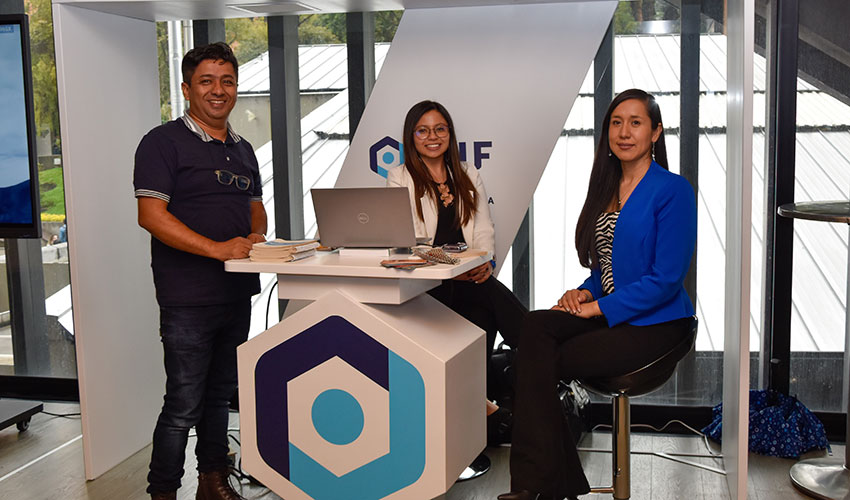
In many countries, those involved in politics are seen in a negative light. Moreover, the democratic fabric has weakened in many parts of the world. How do you expect to reverse these trends?
We are aware of a shift in popular opinion toward distrust of democracy and the exercise of public office. We are therefore proposing debates centered on a practical philosophy that will help us to study the ontological basis of governance and ethics. Our aims are to strengthen democracy through participatory models that make problems visible and empower those affected, and to humanise the decisions that affect society in general. We have made a major commitment to education, access, transparency, collective control and ongoing development.
Systemic pressures and
constraints often hamper good practices, but the EJG envisions a society where
morals, ethics and high standards are the key principles of action and where
the public sphere inspires commitment to a national project and a common
destiny, not in response to coercion but with good will and a sense of
belonging.
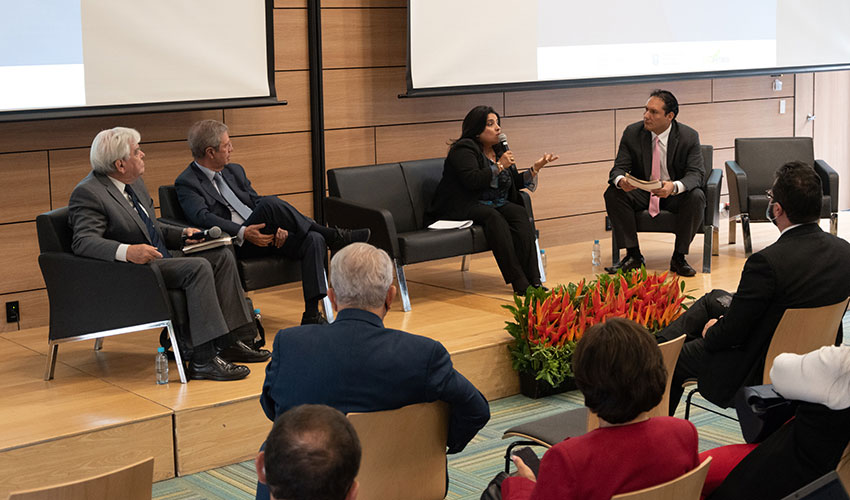
To conclude, how do you see your commitment in relation to Ignatian spirituality and the Universal Apostolic Preferences (UAP) that guide the Society of Jesus?
The EJG is inspired by the
Mission Statement of the University: “[The Javeriana] aims to achieve the
integral formation of persons who are outstanding for their human, ethical, academic
and professional qualities; for their sense of social responsibility; and for
their desire to create and develop knowledge and culture in a critical and
innovative way. Such persons will seek to achieve a society that is just,
sustainable, inclusive, democratic, fraternal and respectful of human dignity”.
The fundamental principles that guide and give value to our work are commitment
to reflection and discernment, appropriate formation, coordination of voices
and perspectives, care of our common home and the visibility of all actors,
particularly victims and minorities.



